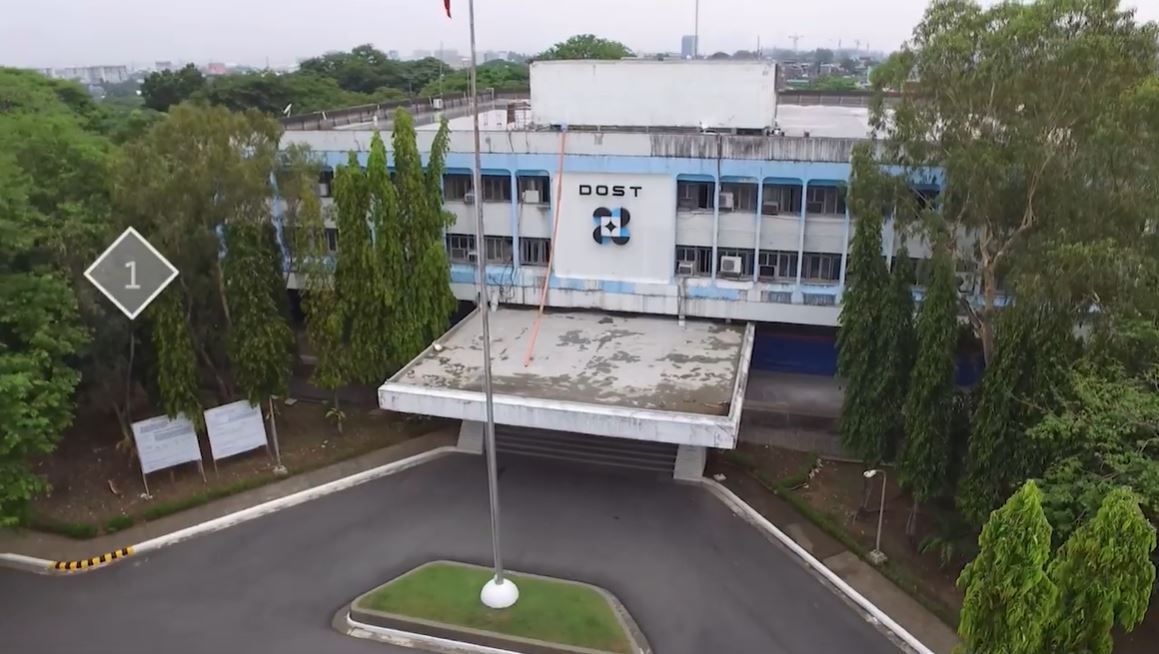
Six research and development studies to help establish the Philippines’ Virology and Vaccine Institute have received approval from the Department of Science and Technology (DOST).
DOST approved for implementation the following new R&D projects of the DOST-Industrial Technology Development Institute (ITDI) as part of the VIP program:
1. Isolation and purification of Philippine common viruses with medical importance and pandemic potential for Antigen-Antibody Studies
This study would focus on isolating pure cultures of coronaviruses, and avian viruses, from civet cats, and chickens, respectively. These pure culture viral isolates would then be used for the production of antigen-antibodies that could be used in the development of diagnostic tools and vaccines. This project is led by Dr. Annabelle Briones of the Environment and Biotechnology Division (EBD) of ITDI.
2. Combination Therapy: Lytic Bacteriophages and Plant Extracts against Multidrug-Resistant Bacteria
This study aims to isolate and characterize bacteriophages from the environment and screen them for their bactericidal and antibiofilm activities against multidrug-resistant (MDR) bacteria. The synergistic bioactivities of these isolated bacteriophages and the use of extracts from selected Philippine medicinal plants will also be investigated. The results of this study may help in the continuous fight against antimicrobial resistance by providing evidence on the efficacy and efficiency of combining alternative strategies against MDR bacterial infections. The leader for this project would be Dr. Ursela Bigol from the EBD-ITDI.
3. Detection of food and water-borne bacterial pathogens using phage-based diagnostics
In this study, the isolated and characterized phages will be part of the initiative to set up a repository of local strains that will be of great interest to the bacteriophage research in the country. In addition, optical density measurements will be investigated as a simple and inexpensive method for the detection and quantification of bacteriophages at different levels of sensitivity and time efficiency. The study is divided into three phases and the initial phase of this project will be a crucial step in the development of biosensors. Mr. Gelito Joseph Sikat from the EBD-ITDI would be the project leader of this research.
4. De Novo synthesis of non-infective Zika Pseudovirus as reference for diagnostics and vaccines development
This study would aim to produce non-infective, virus-like particles (VLPs) or pseudoviruses of Zika Virus (ZikV), via de novo synthesis. These VLPs/Pseudoviruses would serve as reference material for the researches and allow for a safer and more efficient approach in the research and development of serological diagnostic kits and vaccines against ZikV. These would become the stepping stone for further research for diagnostic tools and vaccines against infective arboviruses such as dengue and chikungunya. This project is to be led by Dr. Ursela Bigol of the EBD-ITDI.
The current shortage of Covid-19 testing and the scarcity of the vaccine supply are the Philippines’ main predicaments during this Covid-19 pandemic. Thus, the DOST has also approved two (2) projects under the VIP program to tackle these problems. These projects would pave the way for the self-sufficiency of the country in terms of research, development, and production of test kits and vaccines, in the future.
5. Development of Antibody Test Kits for Covid-19 using Enzyme Immunoassay
The DOST is supporting the project of the Research Institute of Tropical Medicine (RITM) to develop COVID-19 test kits using antibody enzyme immunoassay (ELISA), a reliable method for biomolecular detection since the 1980s. The approach to COVID-19 testing is scalable and may greatly augment the current shortfall in testing volume capacity. The project is in response to the country’s current need of around 90k tests daily but the capacity is only about half that much. The ELISA test kits would also be used for immunosurveillance, or the quantitative measurement of the immunizing antibodies (IgG) against COVID-19 of the post-vaccinated individuals. This project would be led by Dr. Catherine Masangkay, one of the doctors of RITM.
6. Antigenic Peptides as Potential Candidates for Covid-19 Vaccine Development
A project by St. Luke’s Medical Center (SLMC) on antigenic peptides as potential candidates for COVID-19 vaccine development was also approved recently. Specifically, the project will establish the “proof of concept” by identifying antigenic peptides located at the S (spike), M (membrane), E (envelope), and N (nucleocapsid) proteins of the SARS- CoV-2 that are capable of inducing B and T cell immune responses for the development of a potential vaccine for Covid-19 and its variants. These would pave the way for the development of non-infectious Covid-19 pseudovirus that would be used as a safer and more efficient alternative in manifold applications in the field of serology and vaccine development. The project is to be led by Dr. Maria Terrese A. Dimamay from Research and Biotechnology Division – St. Luke’s Medical Center (SLMC-RBD)
SEND WELL WISHES to the DOST and participating research teams as they implement the R&D projects to help establish the Philippines’ Virology and Vaccine Institute!
Good News Pilipinas is celebrating its 15th Anniversary in 2021 by giving away prizes! Subscribe to our Good News Pilipinas! TV YouTube channel and enter the raffle by sending us an email to editor@goodnewspilipinas.com
The post 6 studies to help establish Philippines’ Virology and Vaccine Institute get nods appeared first on Good News Pilipinas.

0 Comments